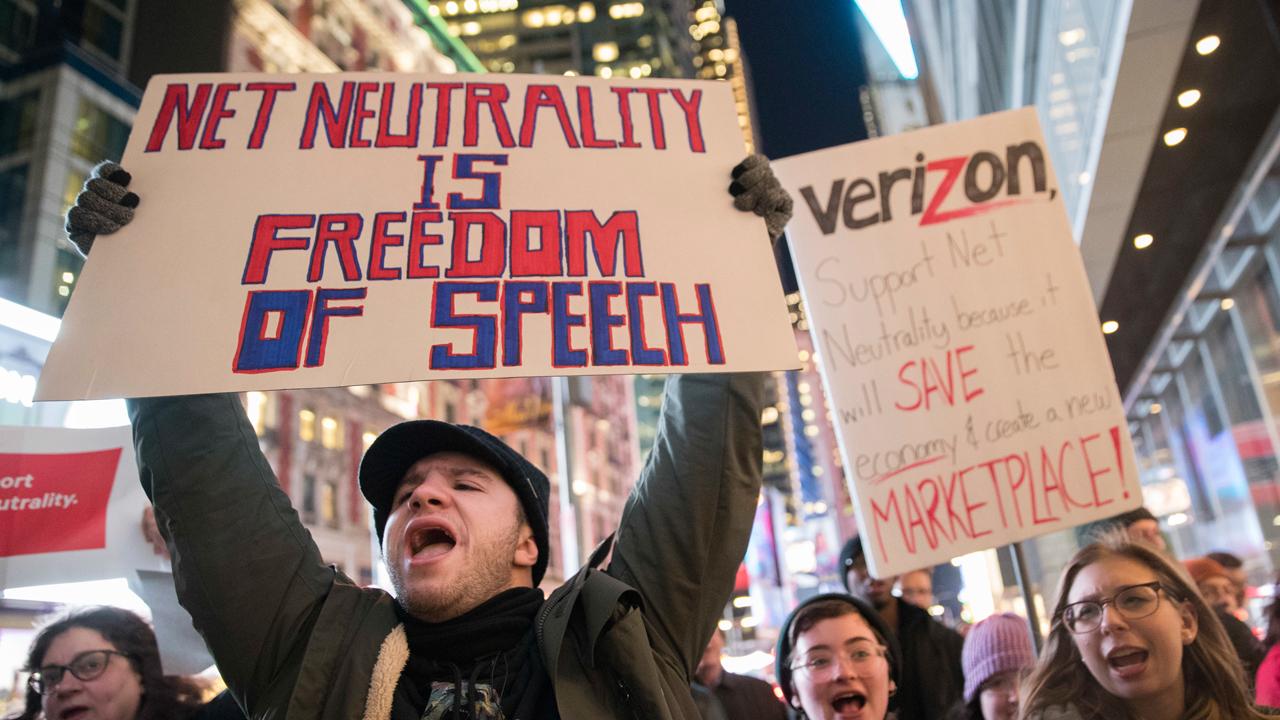Net neutrality repeal: 5 things to know
The U.S. Federal Communications Commissioner’s divisive decision Thursday to overturn Obama-era “net neutrality” regulations meant to maintain an open and free internet sets up a legal fight that will have major implications for how consumers stream and view content on the web.
The FCC voted 3-2 along party lines to overturn the rules. The repeal means that internet providers like AT&T, Comcast and Verizon will no longer be required to treat all internet content equally.
Service providers will be able to slow down or entirely block content, or to prioritize their own services over those of rival companies. Critics argue that the net neutrality repeal is a blow to consumers, as it could empower companies to charge users to use certain internet content or features, while FCC Chairman Ajit Pai says the ruling will spur competition.
Here are five things to know about today’s decision.
The White House and GOP leaders support repeal
White House Press Secretary Sarah Huckabee Sanders said President Trump supports the FCC’s decision to overturn net neutrality.
“The Trump administration supports the FCC’s effort to roll back burdensome regulations but as we have always done and will continue, we certainly support a free and fair internet. Anything beyond that, I would refer you to the FCC.”
House Speaker Paul Ryan (R-WI) said the Obama-era rules threatened “the free and open internet that has done so much to advance modern society.”
"The Trump administration's action to roll back this egregious government overreach into the most innovative space will benefit all users of the internet. As Chairman Pai outlined today, the way to protect consumers is to put the Federal Trade Commission back on the beat to crack down on those who would abuse open access. This new plan of action will open new avenues for telemedicine, distance learning, and future innovations."
The repeal will likely impact your wallet
Critics of the net neutrality repeal have long argued that an end to the rules would allow internet service providers to charge more for faster internet speed or to create exclusive content “bundles” similar to how cable companies market channels to users.
Scott Vernick, a cybersecurity legal expert and partner at Fox Rothschild, told FOX Business that companies like Netflix or Amazon could pay ISPs more money for “preferential treatment,” which could mean that streaming services will charge users more to offset their own costs.
Some companies are already speaking out
Netflix, Microsoft and Reddit are just a few companies that have criticized the FCC’s net neutrality repeal.
“We’re disappointed in the decision to gut #NetNeutrality protections that ushered in an unprecedented era of innovation, creativity & civic engagement. This is the beginning of a longer legal battle. Netflix stands w/ innovators, large & small, to oppose this misguided FCC order,” Netflix said in a statement.
Several groups are preparing for a legal fight
Left-leaning public interest groups, including Public Knowledge, Free Press and Common Cause, are preparing to challenge the FCC’s decision, Reuters reported. The Internet Association, a trade group which represents industry giants like Facebook and Google, also sharply criticized repeal attempts.
“The fight isn’t over. [The] Internet Association is currently weighing our legal options in a lawsuit against today’s Order, and remains open to Congress enshrining strong, enforceable net neutrality protections into law,” the group’s president, Michael Beckerman, said in a statement.
Telecom giants are downplaying the impact
The major ISPs have already vowed not to block or throttle content for users. Comcast addressed many common criticisms in a blog post, stating that it had “no plans” to create internet “fast lanes” via paid prioritization agreements.
“We have repeatedly stated, and reiterate today, that we do not and will not block, throttle, or discriminate against lawful content. These fundamental tenets of net neutrality are also key components of our core network and business practices – they govern how we run our internet business,” Comcast said.




















